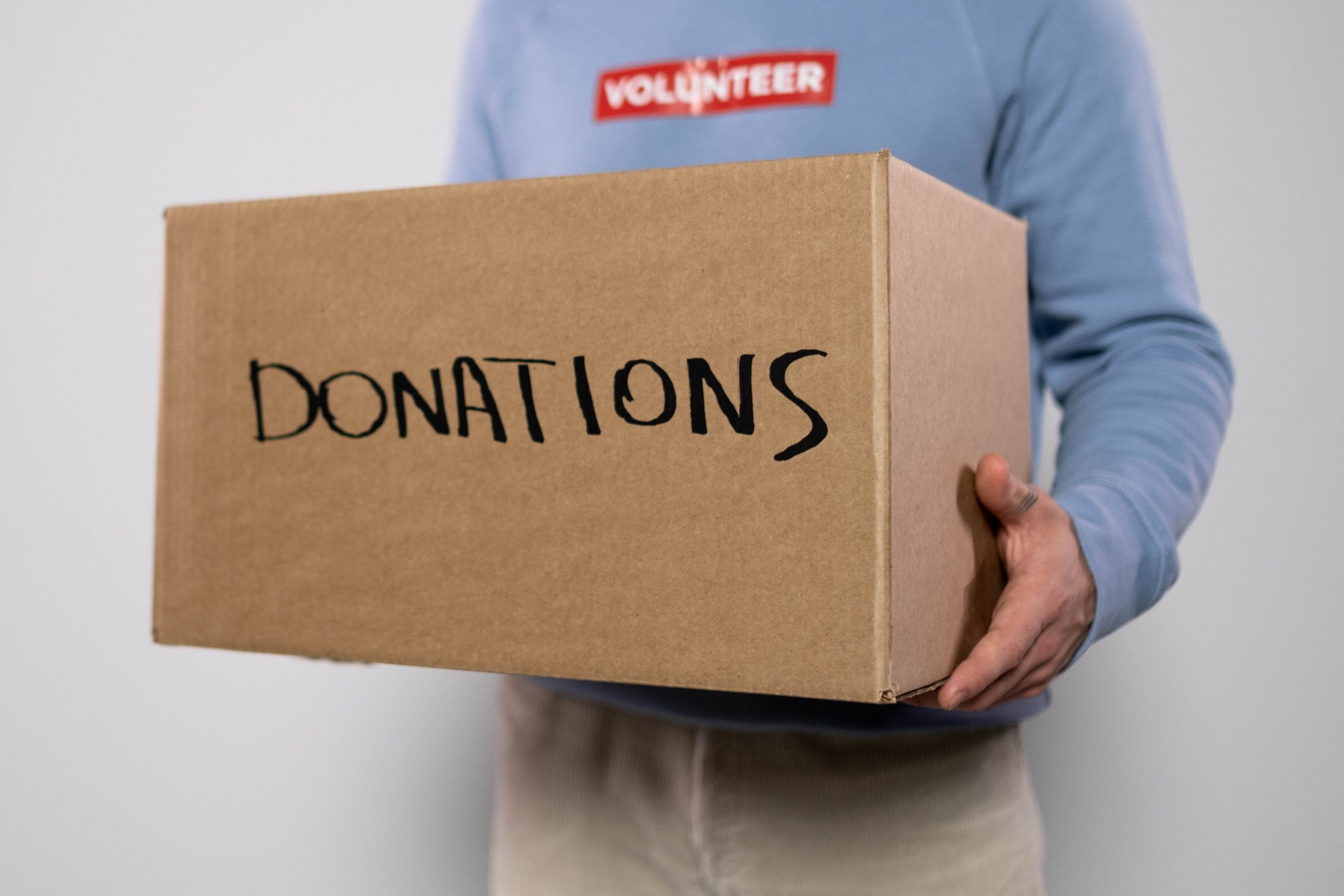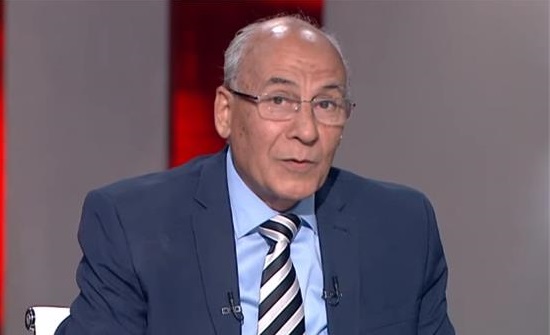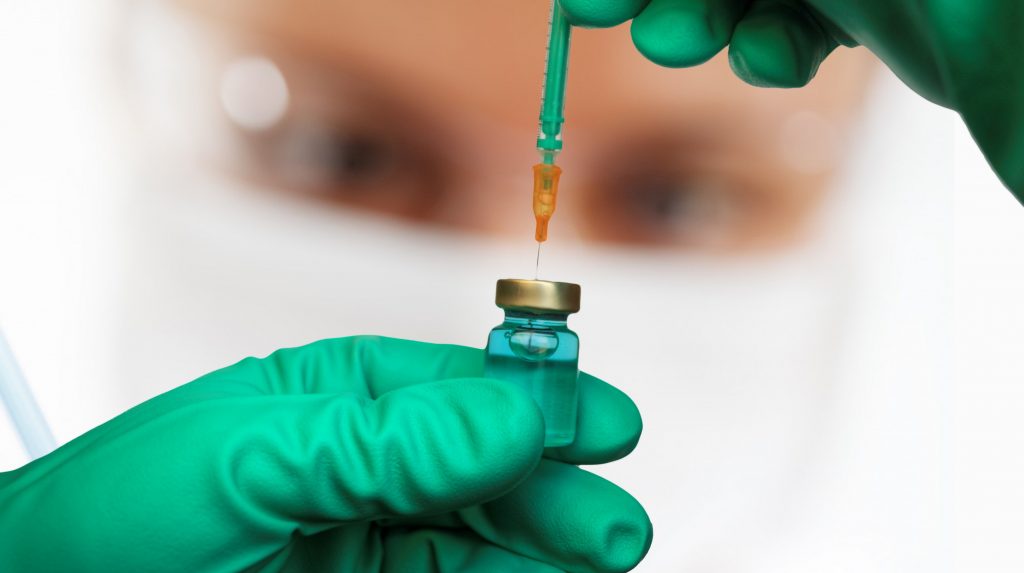Optimism might be in short supply as the coronavirus pandemic grows deadlier by the day, taking thousands of lives around the world and upending daily life.
But one bright spot is the speed with which the business community has begun tackling the problem. As the Egyptian government tries to contain the spread of COVID-19 at every turn, the public and private sectors rolled out promising initiatives and adopted new technologies that could help mitigate the pandemic — and save lives.

The statistics are grim. In less than three months, the virus has surged from Wuhan, China, to infect more than 750,000 people across 203 countries, according to official counts. Many more people may have the virus and do not know it. More than 280,697 people have died as of the morning of May 10.
The rapid spread of the virus has led to a scarcity of medical supplies, especially ventilators needed for the critically ill as well as personal protective equipment (PPE) supply gaps. Seven countries account for 70 percent of total ventilator exports, according to the World Bank.
Thus, many nations — including exporters of those devices — face a daunting shortage. Italy’s government asked the country’s only domestic manufacturer of ventilators, Siare Engineering, to more than triple its monthly production from 160 machines to 500 and ordered to reserve them for domestic use, according to Reuters. Previously, the company exported 90 percent of its ventilators.
Fiat Chrysler Automobiles joined forces with Siare to provide additional resources and know-how to help scale up production.
Made in Egypt
The number of reported coronavirus cases in Egypt passed 10,000 on May 12. According to Cabinet spokesman Nader Saad, there are 3,000 to 4,000 ventilators in quarantine hospitals and 11,000 ICU beds nationwide. Though no more than 10 percent of cases need ventilators, according to Health Minister Hala Zayed, initiatives to produce them locally have emerged to help cope with any larger outbreak. Tanafoss (Breathing) is the most ambitious project, with a first-phase goal of producing 5,000.
“The idea was triggered following the announcement by medical device-maker Medtronic that it would publicly share design specifications for one of its ventilators,” Tanafoss spokesperson Robert Boutros told state-run Al-Ahram. In late March, Medtronic posted specs for its basic PB 560 ventilator “to enable participants across industries to evaluate options for rapid ventilator manufacturing to help doctors and patients dealing with COVID-19.”
After studying Medtronic’s device and the feasibility of producing it in Egypt, Boutrous said, “our work is divided into three specializations: electronics, mechanical and software. A large percentage of components are available locally and factories have already begun producing them, especially the hardware, such as boards, screens, valves and hoses.”
Some components cannot be found in the Egyptian market or have been discontinued, he noted, but there are options. “A large number of electronic engineers are working on alternatives, as are software engineers because the installation of an alternative to any of the components would require a modification of the device’s software,” said Boutros.
Another challenge, he added, is some components depend on sophisticated technology not available in Egypt. “We don’t have time to experiment. However, we may resort to importing a piece or two of these components, such as the embedded controller, to speed up our production,” said Boutrous. “We are open to all kinds of cooperation with all concerned bodies, universities, research institutions and professors. We frequently publish the required specializations in which we need volunteers and we have been amazed by the number of applications.”
Hani Dahi, head of the Egyptian Engineers Syndicate, called on the organization’s electrical and mechanical divisions to support the initiative with all their human resources, according to Boutros.
When it comes to mass production of a prototype ventilator in Egypt, there are three possibilities: military factories, the Arab Organisation for Industrialization, and the Al-Arabi Factory, he said.
The Holding Company for Metallurgical Industries, Zewail City of Science and Technology, and Cairo University also have COVID-19 initiatives.
“Cooperation is underway among all the initiatives, but our working concept is different,” said Boutros, explaining that Tanafoss is developing a fourth-generation ventilator [Medtronic’s device], while other initiatives aim for second and third-generation ventilators that need to be manually adjusted and monitored. “To simplify, they are more suitable for patients with mild coronavirus symptoms, while the one we’re working on is for intensive care units.”
Medhat Nafei, chairman of the state-run Holding Company for Metallurgical Industries, proposed that his company handle the first stages of production, including a prototype ventilator. “The plan is to shift toward a process based on assembly rather than full manufacturing, because full manufacturing may require a transition that could take more than 10 years,” Nafei says, adding he approaches the project from a risk management perspective as Egypt’s patient count is still comparatively low.
Glass half-full
As the limits of crisis-management tools become clear, it is increasingly apparent the private sector must contribute. There’s a reason the White House asked Walmart to help with drive-through testing and Downing Street wants manufacturers to shift production lines to building ventilators.
“The role of the private sector is vital, and [we] constantly [call] for private sector collaboration to offer even the smallest level of support to assist government efforts in fighting the pandemic,” says Heba El Sewedy, founder and chair of Ahl Masr Foundation.

Although the Ahl Masr Foundation specializes in treatment of burn victims, El Sewedy says they are now focused on fighting the coronavirus with the help of many private entities. The foundation is cooperating with companies in diverse sectors including finance, food and beverage, real estate, oil and gas, and telecommunications.
“We’ve provided a sizable number of ventilators of various types and modalities, complete ICU solutions and thousands of pieces of PPE for medical personnel,” El Sewedy says.
Upon launching its initiative Ahl Masr Ad Al Masoulia (Up to the Challenge), the foundation signed a memorandum of understanding with the Supreme Council of Universities to provide quarantine hospitals with imported ventilators, monitors, gloves, face shields and gowns.
Under the supervision of the Health Ministry, the foundation equipped three of its buildings with a total of 500 beds to serve as quarantine hospitals. “We also have partnered with Egyptian Fashion designers Sara Onsi and Vivian Moawad to reopen their workshops to produce blankets and bedsheets,” El Sewedy adds.
In late April, Giza Systems Education Foundation (GSEF) launched a face-mask production line in a10th of Ramadan factory as part of Ahl Masr’s initiative. Production capacity can reach 10,000 masks per day.
More than 27,000 face masks have been distributed to 140 hospitals, including El Qasr El Ainy, El Demerdash, Abu El Rish, Ain Shams University Hospital, Air Forces Specialized Hospital and others in Beni Suef and Minya governorates as of May 3.

Shehab El Nawawi, founder and chairman at GSEF, said that since the outbreak began the foundation team has brainstormed with the international community to generate solutions through digital manufacturing technologies such as 3D printing and laser cutting. However, Al-Nawawi says that due to local needs and high demand, GSEF has maximized production of masks that have received positive responses from doctors and hospitals.
Answering the calls
The business community is working to protect healthcare workers as well as maintain continuity of operations while aiming to help patients.
General Electric (GE) Healthcare has boosted both capacity and output of equipment including CT scan machines, ultrasound devices, mobile X-ray systems, patient monitors and ventilators. All of which are essential in the diagnosis and treatment of COVID-19 patients says GE Executive Director Mai Abdel Halim.
A few weeks after the WHO declared a global pandemic, GE Healthcare and Ford Motor Co. announced they would partner to scale up production of ventilators. Ford provides technical and production expertise with the goal of manufacturing a simplified design of GE Healthcare’s existing ventilator and producing 50,000 units within 100 days, says Abdel Halim.
GE Healthcare also has rolled out a software application using artificial intelligence to manage patient load and maximize resources such as ICUs, lab orders, test results and ventilators. Working in the background, algorithms developed by GE Healthcare gather and analyze millions of data points generated by hospitals and turn them into real-time operational insights, she explains. The software is being used at a regional level to help metropolitan areas pool bed capacity across health systems.
“We also are working with our partners in the government… and the Unified Procurement Authority on the timely provision of ventilators,” Abdel Halim says. “There is a massive demand for these critical systems around the world, so we’re working hard to leverage our global supply chain to serve the market from different origins.”
Meanwhile, the company’s field engineers work with clinics and hospitals across the country to identify, repair and maintain ventilators that are out of service. “Every machine matters and can save lives,” says Abdel Halim. ”Across 26 public hospitals, we provide free training for staff so they’re able to complete level one troubleshooting with medical devices to quickly address issues with equipment on the spot and focus on what matters most: patients.”
Meanwhile, Michael Schmermer, managing director at Siemens Healthineers Egypt, says the company is taking all necessary precautions to ensure full on-site service capacity of technicians and specialists. “We are working relentlessly on accelerating and facilitating COVID-19 diagnostics, for example, by providing CT scanners in containers for mobile usage,” he says, adding the company is continuously working on an uninterrupted delivery supply chain of CT scanners, ultrasound devices, X-ray equipment and blood gas analyzers.

However, he believes proactive virus testing drives by the government, especially in hotspots, would go a long way toward curtailing the spread of the virus. “Diagnostic testing is strongly recommended by the WHO as an important tool in the fight to slow down and reduce the spread of the virus,” Schmermer says. “Tests allow us to identify infected individuals, qualify their isolation, and assist in tracing and quarantining their contacts. It’s a basic first step, which also helps allocate medical resources and staff more efficiently.”
He adds the company is working with healthcare providers and pursuing innovative ways to deliver effective testing for COVID-19 clinicians and patients as quickly as possible.
Siemens Healthineers has released its Fast Track Diagnostics (FTD) SARS-CoV-2 assay test kit used to aid in the diagnosis of infections of the SARS-CoV-2 virus that causes COVID-19, according to Schmermer. The assay is designed to identify the virus in less than three hours, he says and is expected to be released for WHO and FDA (US Food and Drug Administration) by mid-May.
Siemens Healthineers is working on a SARS-CoV-2 serology assay to detect certain antibodies in the blood that potentially might reveal if people had COVID-19 even if they were asymptomatic or never diagnosed with the disease, he explains. The test is supposed to be released in the US under EUA (Emergency Authorization Approval) by end of May.
Go-getters

The coronavirus pandemic is leaving no sector untouched, as even real estate developers are joining the fight.
“Our ‘white army’ cannot fight this battle on its own and definitely needs our support as responsible individuals and corporates,” says Ahmed Shalaby, CEO of Tatweer Misr. More importantly, Shalaby says, is acknowledging the impact on the informal sector, as many families lost their daily income due to restrictions imposed on movements and gatherings.
To support the community, Tatweer Misr launched the campaign Benbny Hayah-Building Life, to supply houses in the village of Kafr Abdel Khalek in Minya with water systems and electricity which enables residents to stay home, maintain social distancing and wash hands regularly. “We realized that the lower socioeconomic class in Egypt would be incapable of abiding by WHO guidelines as they lacked basic sanitary facilities,” Shalaby says.
Furthermore, the company works closely with families in Wadi El Natrun to ensure that those who lost their income can sustain their families. So far, Tatweer Misr has spent EGP 5 million to support more than 100 families.
By partnering with Ahl Masr Foundation, Tatweer Misr also provides government and educational hospitals with ventilators, monitors, syringe pumps and PPE for doctors and nurses.

Meanwhile, Palm Hills Developments converted a 200-room tourist establishment to a quarantine facility, says Chairman Yasseen Mansour. It will house those working on the frontline of the COVID-19 crisis, including doctors and service staff, in addition to patients and quarantined individuals. As of late April, there had been 71 cases identified. In addition, Mansour Group donated EGP 5 million to the Ministry of Health’s laboratory facilities for research and operating expenses.
“Egypt, like all countries across the globe, is currently facing a crisis, one that requires everyone to unite in order to overcome,” says Mansour. “We must all do our part to help our country and countrymen through adhering to local regulations, compassion and tolerance.”
Hyde Park Developments has provided three university hospitals with 2,000 COVID-19 antibodies IgM/IgG rapid tests. In collaboration with the ministries of higher education and scientific research, and social solidarity, as well as Misr El Kheir Foundation, HPD provided the National Cancer Institute with 1,000 tests, Abul Reesh Mounira Children’s Hospital with 520 tests, and El Demerdash hospital with 480 tests, according to a company statement.
Mountain View, on the other hand, leveraged its unique capabilities by offering an out-of-the-box experience to residents. Since the start of the quarantine, the company has been sending families weekly kits that include board games and do-it-yourself meals. This is in addition to an initiative launched in cooperation with Misr El Kheir Foundation March called “Protect Those Who Protect Us” where the company dedicated EGP 4 million to supply PPE to medical professionals. The initiative has already successfully delivered the first batch of equipment to El Negela Central Hospital in Marsa Matrouh, El Agamy General Hospital in Alexandria and others.
“While we all should apply social distancing, we should remain more connected than ever before,” says Amr Soliman, CEO at Mountain View. “No one can face a pandemic single-handedly and no one will remain far from the ripple effects.”
Every thought counts

While much of the response has been from large corporations, smaller businesses have pitched in as well, though they often have less experience and fewer resources.
Scarabaeus Sacer, an ethical streetwear brand, dedicated its entire supply chain to making organic cotton masks and selling them at affordable prices, says Aly El Nawawy, the company’s co-founder. “The goal is to leave medical-grade masks for those who desperately need them at hospitals and on the frontlines,” he says.
According to the U.S. Centers for Disease Control and Prevention, cloth masks can substantially decrease the spread of the disease, especially droplet and airborne modes of transmission. The masks produced are reusable to minimize the environmental impact.
“I believe we are working really hard to make the most of this pause in our usual everyday lives and taking things step by step and day by day,” says El Nawawy. “We never expected to target the Egyptian market this soon as we were focused on the U.K. and Europe.”
El Nawawy also signed an agreement with “The Lunch Box Egypt,” which will include the protective face masks in “stay safe” boxes for mothers and children.
“We also support an initiative called Ben7ayikom (We Salute You) by donating a percentage of our masks to medical professionals and their families as a gesture of appreciation and deep respect for their hard work and selflessness,” he concludes.







